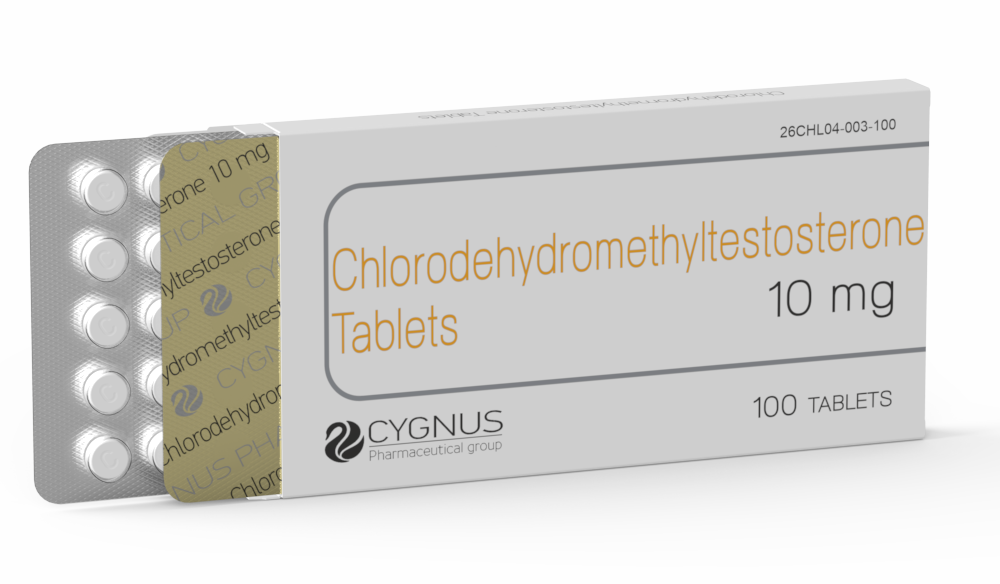Chlorodehydromethyltestosterone (also known as Turinabol) is an anabolic steroid, namely, derivative of methandienone. Both steroids are 17-alpha-alkylated; thereby they survive the first pass through the liver and have high bioavailability. Turinabol was first released by Jenapharm out of East Germany in 1962.
Turinabol has a predominantly anabolic effect, which is more pronounced at the level of skeletal muscles and bones, as well as tissues and organs with intense division (bone marrow, mucous membranes, etc.). The drug causes primarily an increase in muscle mass and weight gain (the effect is less pronounced than that of testosterone, but which can be enhanced when taken with other anabolic steroids). At the bone level, Turinabol promotes calcium deposition, possibly due to increased formation of the protein matrix and / or reduction of bone tissue reactivity to parathyroid hormone.
A significant role in the implementation of the anabolic action belongs to the metabolic effects: a positive nitrogen balance (nitrogen retention); increased protein synthesis; reducing the breakdown of amino acids; potassium and phosphate retention. The drug stimulates hemopoiesis, especially erythropoiesis (increases the synthesis of erythropoietin), and also increases leukopoiesis and promotes the formation of platelets.


